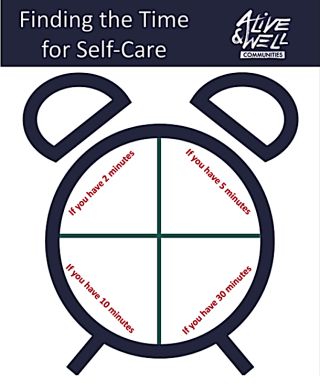Career
Who Has Time For Self-Care? You Do
Even with today’s hectic schedules, self-care is possible. Here’s how.
Posted December 30, 2022 Reviewed by Tyler Woods
Key points
- Commonly referred to in conversation and in the media, "self-care" means different things to different people.
- Time and financial barriers can impede implementation of self-care activities.
- Here are three tips for making regular self-care more feasible and achievable.

Self-care is something often referred to in conversation and in the media, but what exactly does it involve?
It can be defined as activities that allow one to recharge and reset, thereby enhancing one’s resilience and sense of well-being. Self-care can be quite beneficial in one’s personal and professional life if one can only find the time in a hectic schedule to engage in it.
Baker and Gabriel (2021) found that their research participants believed self-care to be important for their well-being, and for preventing burnout at work, but also noted how challenging it can be to implement routine self-care practices. Financial barriers, time barriers, and obligations to others can get in the way of implementing effective self-care. Here are a few tips for more easily achievable self-care.
1. Engaging in physical activity.
Exercise doesn’t have to involve swimming in the Caribbean or skiing down the slopes. It can take the form of a vigorous, 25-minute walks three times a week, 30 minutes of yoga twice a week, or working out at home. Regular exercise has many benefits, including stress relief, decreased blood pressure, and an enhanced immune system. It doesn’t have to be expensive, but it does require a regular commitment and a personal investment in oneself.
2. Mindful practices, such as meditation.
Mindfulness can be defined as an individual’s ability to be aware and present in the moment while also acknowledging and accepting their feelings, thoughts, and body sensations. In a mixed-methods study, Crowder and Sears (2017) found that mindfulness-based interventions elicited a positive change in participants’ attitudes and perspectives, behavior, and energy, which contributed to a decrease in the participants’ perceived stress. Research has shown that the self-care practice of mindfulness can help to build resilience among those who work with vulnerable populations (Kinman et al., 2020; Roulston et al, 2018).

3. Mini de-stressing breaks.
For readers who are at this point thinking, “But I am just too busy. My schedule won’t allow for any of those activities,” there is still hope. If you have a timeframe of only two, five, or ten minutes, you can still take a mini-restorative break.
Alive and Well Communities created a self-care clock (available free from their website) with suggested activities that you can work into the limited time you have. For instance, with two minutes, you could engage in a series of cleansing breaths, make a cup of tea, or get up and stretch. With 5 minutes, you could read a favorite poem or a set of quotations, chat with a co-worker, or eat a healthy snack (if you work from home, take a break outside, sing, or dance). A 10-minute timeframe means you could try to squeeze in a quick walk, greet a friend by email, or write in a journal.
In sum, it's one thing to know what activities can rejuvenate us and “really work,” and it’s another thing to actually do those activities. Here are a few questions to consider as we prepare for a new year:
- What do you do to take care of yourself?
- Do you see yourself as deserving of the investment of the time and energy necessary to be able to engage in effective self-care?
- What is one thing that you will try this week that will help you recharge?
The takeaway is that self-care doesn’t have to be a dramatic new year’s resolution. It can comprise simple, manageable, activities that you know you will enjoy.
References
Baker, C., & Gabriel, L. (2021). Exploring how therapists engage in self-care in times of personal distress. British Journal of Guidance & Counselling, 49(3), 435-444.
Crowder, R., & Sears, A. (2017). Building resilience in social workers: An exploratory study on the impacts of a mindfulness-based intervention. Australian Social Work, 70(1), 17–29.
Kinman, G., Grant, L., & Kelly, S. (2020). “It’s my secret space”: The benefits of mindfulness for social workers. The British Journal of Social Work, 50(3), 758–777.
Roulston, A., Montgomery, L., Campbell, A., & Davidson, G. (2018). Exploring the impact of mindfulnesss on mental wellbeing, stress and resilience of undergraduate social work students. Social Work Education, 37(2), 157–172.


